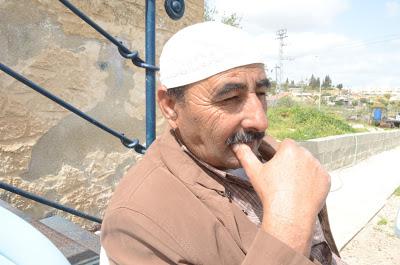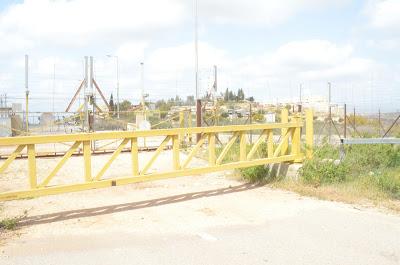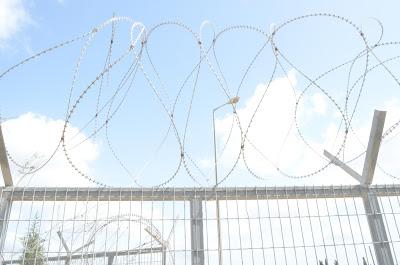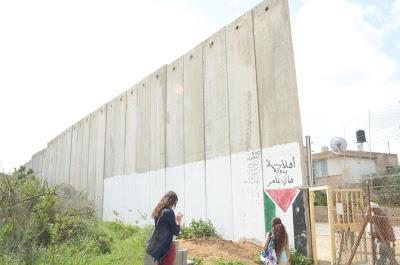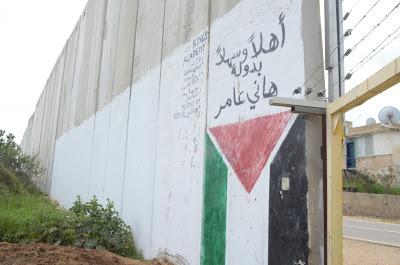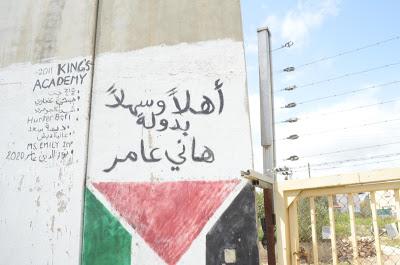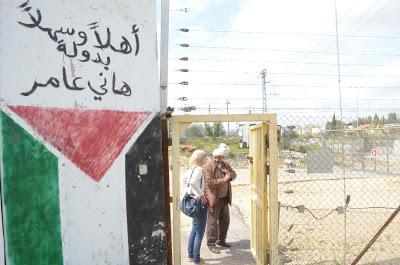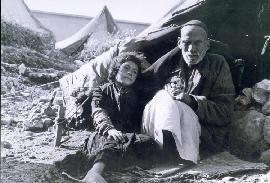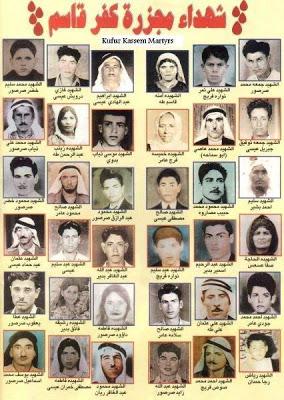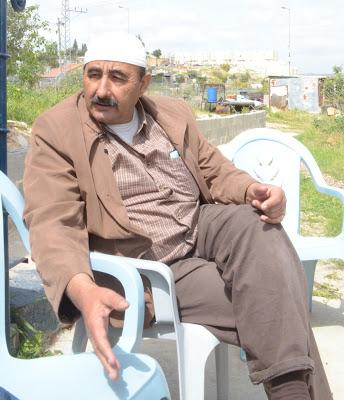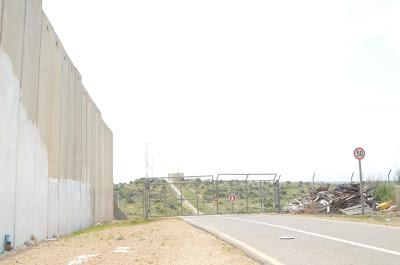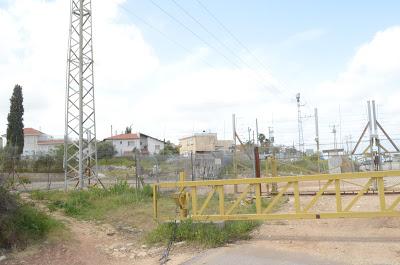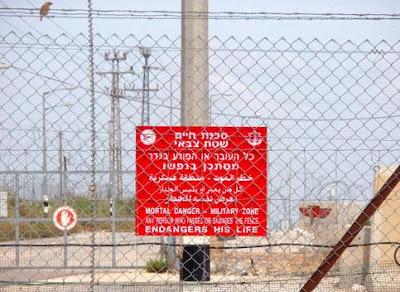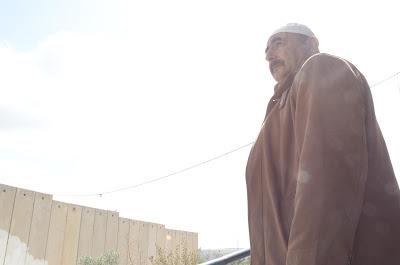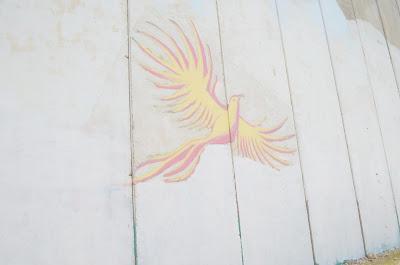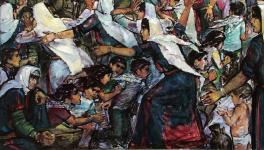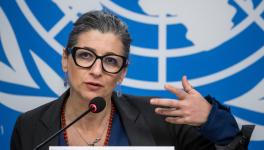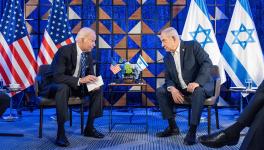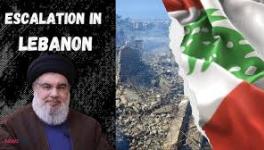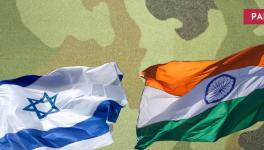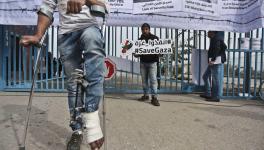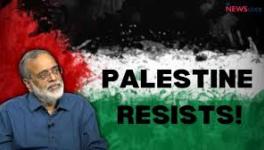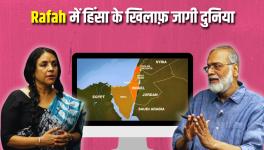Newsclick Special Feature from Palestine
A Father of Struggle: The Story of Abu Nidal
In March 2013, two of us from the Newsclick team visited an extraordinary man in an extraordinary situation. The man’s name is Hani Amer, but his eldest son is called Nidal, or struggle. So he is Abu, father of, Nidal.
Abu Nidal lives in a village called Mas’ha. The village of Mas’ha is about 20 km to the west of the city of Salfit, 35 km to the west of Nablus and 6 km to the east of the Green Line.
Before the war of 1967, Mas’ha had about 1000 inhabitants; with the exodus after the war, the number reduced to 600. In 2000, the village population was 2000. (1)
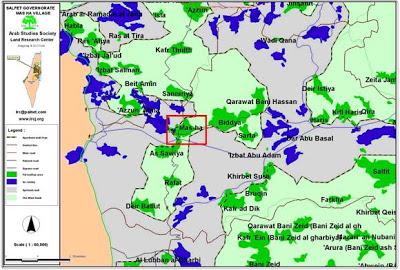 |
|
Mas’ha Village in Salfit District. Land Research Centre,
|
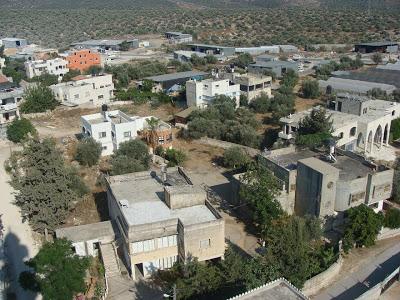 |
| http://mptinpalestine.blogspot.in/2009_07_01_archive.html |
Abu Nidal lives in Mas’ha Village – in a manner of speaking. The house sits between the two main gates to the village. It is, in effect, separated from the village, and the Israeli settlement nearby, by four layers of “security”.

This is what occupation looks like. Alongside a grey concrete wall and a wire fence, there is a small opening – a gate to which Abu Nidal has the key.
Abu Nidal did not always have the key – he got it after years of fighting for it. He remembers what it was like before he got the key. He tells his visitors of the time his son, then three years old, got stuck outside. Abu Nidal’s family was helpless, locked in. Friends of the family had to throw food and other supplies over the gate for several days. Abu Nidal now has the key to the gate; but, warned by sensors on the fence-wall, the army knows when people visit him.
Abu Nidal’s father and grandfather were farmers. Abu Nidal is a refugee from Kufr Qasem. The village of Mas’ha is considered the “mother village” of Kufr Qasem town. After the Nakba in 1948, Mas’ha was split in two unequal parts. 70 percent of the land was annexed by Israel, including the town of Kufr Qasem.
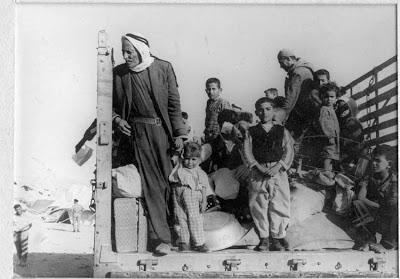 |
Many families like that of Abu Nidal’s became “refugees” in their own village, in the 30 percent of Mas’ha that was left to the West Bank.
In 1956, Israel’s border police shot and killed more than 50 “Israeli Arabs” – or ’48 Palestinians – in Kufr Qasem. Again, Palestinians were forced to flee the town.
What has life been like for those who fled Kufr Qasem? Abu Nidal gives us an idea by telling us about his own life.

This is what we saw and heard of Abu Nidal’s reality, and the reality of Mas’ha.
In 1978, the village faced an onslaught by the fundamentalist Zionist Ghus Amunim, and more village land was confiscated for Jewish construction. Three Israeli settlements were built on Mas’ha land: Elkana, Sha’are Tikva, and Etz Efrayim.
 |
|
| Settlers bulldozing Mas’ha lands. www.palestineremembered.com |
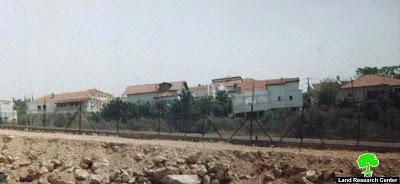 |
|
Settlement of Sha'are Tikva near Mas’ha village surrounded with the Wall,
Land Research Centre, http://www.lrcj.org/Eng/site.php
|
Elkana is literally at the heels of Abu Nidal’s house. Abu Nidal says this settlement grew out of a military compound used by the British army, the Jordanian army, then the Israeli army. The settlers moved in around the 80s in mobile caravans, a typical ploy. The settlement grew into a colony of smart houses. A natural well nearby was destroyed by the Israeli army in 1967.
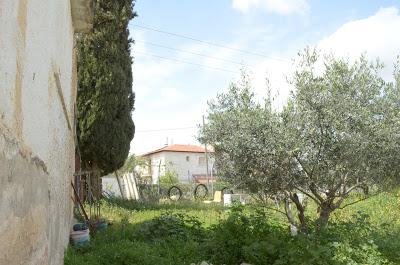
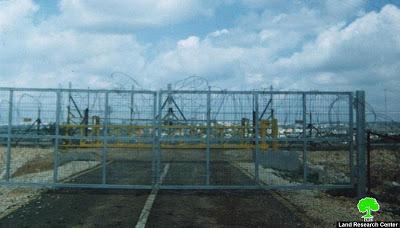 |
| Closed “wall agricultural gate” that forced Mas’ha villagers to take a gate 8 km away from the village to harvest their olive trees. Land Resource Centre, http://www.lrcj.org/Eng/site.php |
Abu Nidal’s current state of siege happened over the years. In 1991, a part of Abu Nidal’s house was demolished for being “too close to the asphalt”. In 1994, the restaurant he owned was demolished. Abu Nidal had a large nursery and an agricultural shop. He also had a poultry farm that he set up with the money he got from selling his house in the village. Then, in 2003, the nursery and shop were confiscated – to build the wall. The poultry farm was demolished in 2004.
Abu Nidal tells his visitors about the way the wall came up in front of his house. The modus operandi was typical. At first Abu Nidal was offered large sums of money for his property. “There is no price for my land, my trees,” said Abu Nidal to the Israeli officers trying to persuade him.
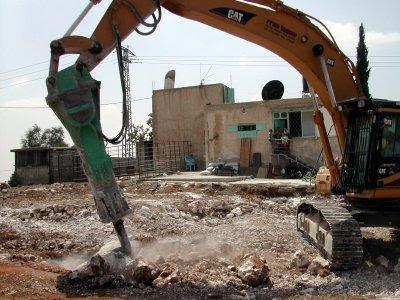 |
| Bulldozing Abu Nidal’s yard. www.stopthewall.org |
The bulldozers came back and went to work, ruthlessly. “They finished the wall in a day,” says Abu Nidal.
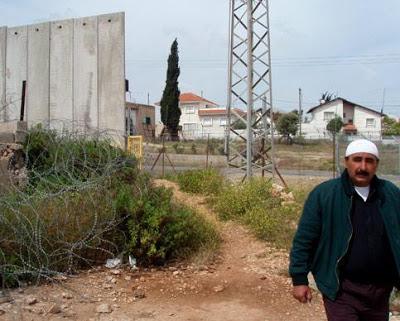 |
| Hani Amer walking near the wall which runs next to his home in Mas’ha. In the background lies the Elkana settlement. Photo by Amer Madi, http://electronicintifada.net/content/they-will-not-break-me/6895 |
His brother and family now try to work on his land. But working the land is no longer profitable, says Abu Nidal. What about water and electricity? He uses diesel, which means high running costs. The Palestinian Authority was supposed to help “rehabilitate” his situation, but they finally said they had no jurisdiction because of the wall.
Abu Nidal, his wife and six sons live in this isolated house, their resources exhausted in more ways than one by the wall. A huge fence separates them from the settlement. The settlers also threaten the family, pelting stones now and then, either to keep them awake at night or to scare the children when they play outside.
The barriers and fences enclose his house anyway.
Abu Nidal has struggled in all the ways he can think of. When he went to court to challenge the demolition orders, he told them, “You are not a state, you are a mob.” He is afraid for his family’s safety; he is concerned about his livelihood. He is disillusioned by the PA as well. “I will resist both the Israelis and the PA,” he says.
Despite everything, Abu Nidal refuses to give up. Abu Nidal, a father of struggle, is well named. So is his son. Nidal and the other children painted on the wall with muralists and friends brought by the International Women’s Peace Service.
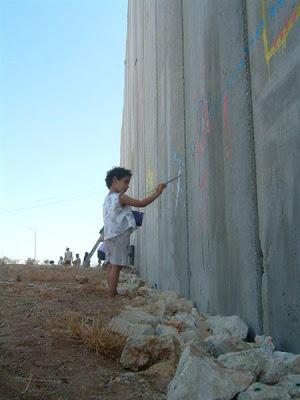 |
|
Photo by Dalit Baum, http://www.ifamericansknew.org/cur_sit/masha-mural.html
|
The wall stands ugly and grey, but there is a bird painted on it. The bird’s wings are spread open in full flight.
(1) http://www.poica.org/editor/case_studies/view.php?recordID=947
Special thanks to Abu Nidal and his family, and the activists of Stop the Wall (www.stopthewall.org)
Get the latest reports & analysis with people's perspective on Protests, movements & deep analytical videos, discussions of the current affairs in your Telegram app. Subscribe to NewsClick's Telegram channel & get Real-Time updates on stories, as they get published on our website.









